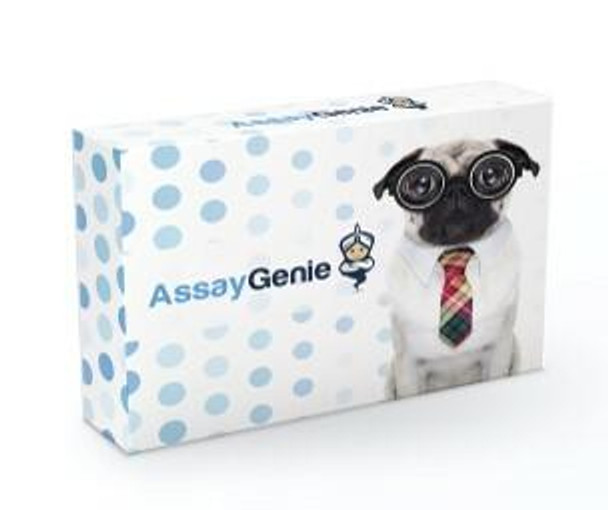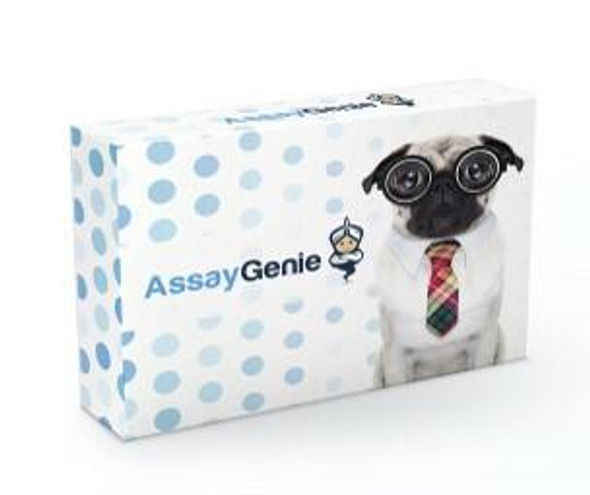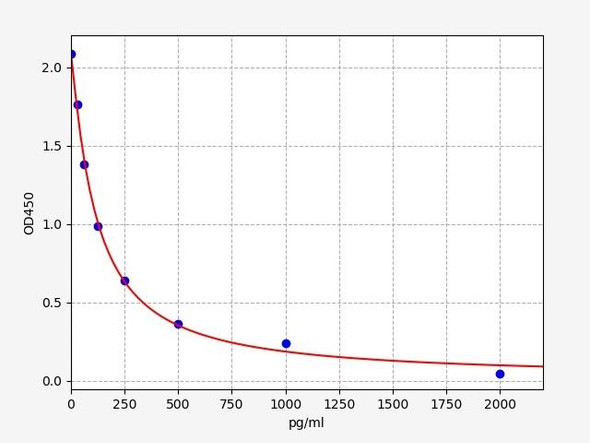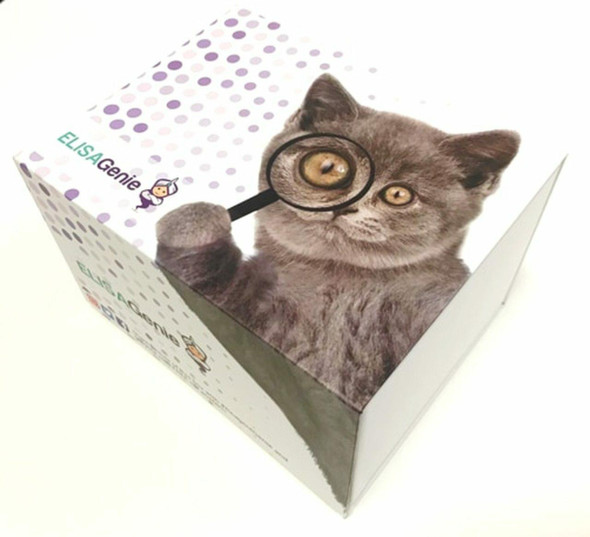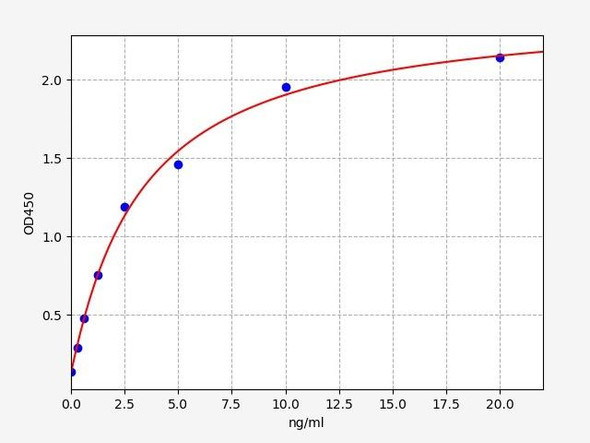Human Neuropeptide Y PharmaGenie ELISA Kit (SBRS0098)
- SKU:
- SBRS0098
- Product Type:
- ELISA Kit
- Reactivity:
- Human
- Applications:
- ELISA
- ELISA Type:
- Competitive
Description
Human Neuropeptide Y PharmaGenie ELISA Kit (SBRS0098)
| Product SKU: | SBRS0098 |
| Size: | 96T |
| Application: | This ELISA kit is designed to detect human, mouse, and rat active NPY (1-36). |
| Uniprot: | P01303 |
| Gene ID: | 4852 |
| Gene Names: | NPY |
| Synonyms: | Pro-neuropeptide Y [Cleaved into: Neuropeptide Y (Neuropeptide tyrosine) (NPY) C-flanking peptide of NPY (CPON)] |
| Target Species: | Human, Mouse, Rat |
| Compatible Sample Types: | Cell Culture Supernatants, Plasma, Serum |
| Design Principle: | Competition-based |
| Method of Detection: | Colorimetric |
| Quantitative/Semi-Quantitative: | Quantitative |
| Range: | 0.1-1,000 ng/ml |
| Sensitivity: | 0.2 ng/ml |
| Recommended Dilution: | Human: 2X, Mouse: 2X, Rat: 8X |
| Storage/Stability: | Standard, biotinylated peptide, and positive control should be stored at -20°C after arrival. Avoid multiple freeze-thaws. The remaining kit components may be stored at 4°C. Opened Microplate Wells and antibody (Item N) may be stored for up to 1 month at 2 to 8°C. Return unused wells to the pouch containing desiccant pack and reseal along entire edge. |
- Pre-Coated 96-well Strip Microplate
- Wash Buffer
- Standard Peptide
- Assay Diluent(s)
- Biotinylated Peptide
- HRP-Streptavidin
- TMB One-Step Substrate
- Stop Solution
- Assay Diagram
- Positive Control Sample
- Capture Antibody
- Technical Manual
Other materials and equipment required:
The Assay Genie Human Neuropeptide Y PharmaGenie ELISA Kit (SBRS0098) will require other equipment and materials to carry out the assay. Please see list below for further details.
- Distilled or deionized water
- Precision pipettes to deliver 2 ul to 1 ml volumes
- Adjustable 1-25 ml pipettes for reagent preparation
- 100 ml and 1 liter graduated cylinders
- Tubes to prepare standard and sample dilutions
- Orbital shaker
- Aluminum foil
- Saran Wrap
- Absorbent paper
- Microplate reader capable of measuring absorbance at 450nm
- SigmaPlot software (or other software that can perform four-parameter logistic regression models)
- Prepare all reagents, samples and standards as instructed.
- Add 100 ul detection antibody to each well.
- Incubate 1.5 h at RT or O/N at 4°C.
- Add 100 ul standard or sample to each well.
- Incubate 2.5 h at RT.
- Add 100 ul prepared streptavidin solution.
- Incubate 45 min at RT.
- Add 100 ul TMB One-Step Substrate Reagent to each well.
- Incubate 30 min at RT.
- Add 50 ul Stop Solution to each well.
- Read plate at 450 nm immediately.
Neuropeptide Y (NPY) is a 36 amino acid peptide hormone found in the neural system and has an important role in obesity. The main effect of Neuropeptide Y is increased food intake and decreased physical activity. It also increases the proportion of energy stored as fat and blocks nociceptive signals to the brain. In addition to its role in obesity, Neuropeptide Y has been associated with a number of other physiologic processes in the brain, including the regulation of energy balance, memory and learning, and epilepsy. Animal studies strongly demonstrate that the stimulation of Neuropeptide Yergic activity via the administration of certain Neuropeptide Y agonists increases food intake compared to control animals. The effects of Neuropeptide Yergic activity on food intake is also demonstrated by the blockade of certain Neuropeptide Y receptors (Y1 and Y5 receptors), which expectedly inhibited Neuropeptide Yergic activity; thus, decreases food intake. For its role in obesity, an increase in Neuropeptide Y is caused by high levels of glucocorticosteriods through directly activating type II glucocorticosteriods receptors and indirectly, by abolishing the negative feedback of CRF on Neuropeptide Y synthesis and release. Meanwhile, obesity-induced insulin resistance and the mutation of the leptin receptor (ObRb) results in the abolishment of other negative feedback mechanisms to regulate Neuropeptide Yergic activity and ultimately food intake. High levels of Neuropeptide Y were also found in the cerebrospinal fluid of patients with anorexia nervosa. The 291 bp coding sequence of the NPY gene synthesizes the pre-pro form of NPY, a 97 aa precursor peptide (see diagram below). Cleavage of the n-terminal 29 aa results in pro-NPY (69 aa), which then undergoes a further cleavage, yielding NPY 1-39 along with the 30-aa C-terminal peptide known as C-flanking peptide of NPY (CPON). NPY 1-39 is further processed to the mature form (NPY 1-36). The function of CPON is not currently understood. This ELISA kit is designed to detect active NPY (1-36).

